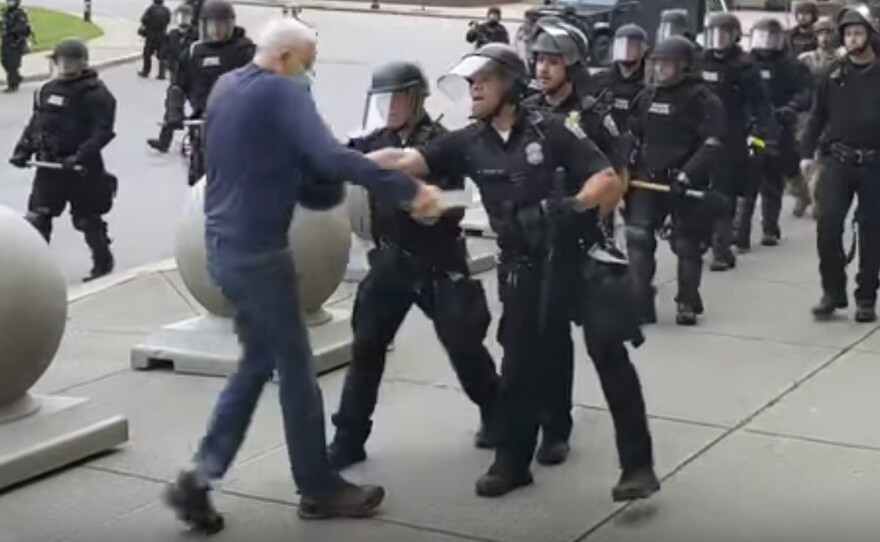Erie County, N.Y., district attorney John Flynn said Thursday that a grand jury proceeding has cleared two police officers accused of assaulting a 75-year-old protester last summer.
The incident occurred in Buffalo on June 4 during a Black Lives Matter demonstration.
Officers Aaron Torgalski and Robert McCabe were captured on cell phone video shoving Martin Gugino to the ground.
Gugino cracked his skull on the pavement and sustained a brain injury, spending a month in hospital. Image of the confrontation went viral.
Speaking at a press conference, Flynn maintained that the assault warranted the felony charges that he filed.
"The video speaks for itself," Flynn said. "If the individual victim is 65 years or older and the perpetrators are 10 years younger, then it reaches that felony level."
The grand jury proceedings were held in secret and Flynn said he was unable to offer any insight into what evidence he presented or why the charges were dismissed.
He predicted that some members of the Buffalo community would accuse him of not prosecuting the case aggressively enough.
"I'm going to get that criticism, no doubt about it," Flynn said. "I'm telling you I sandbagged nothing. I put all relevant evidence into that grand jury."
The union that represents officers McCabe and Torgalski issued a statement praising the decision, saying the men were "following departmental procedures."
The two officers are not expected to face further charges.
Copyright 2021 NPR. To see more, visit https://www.npr.org.







